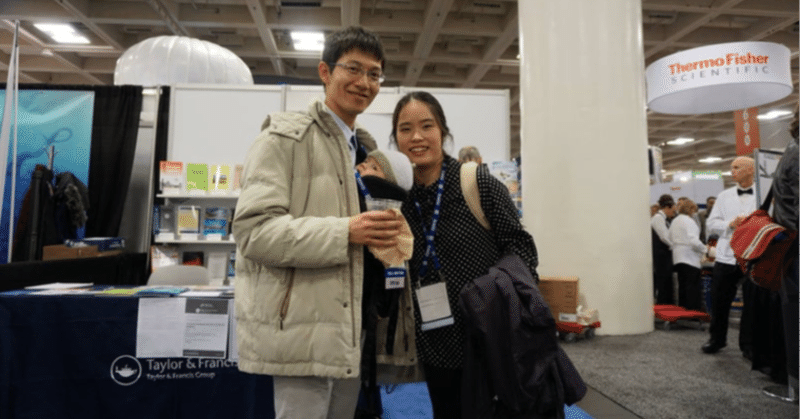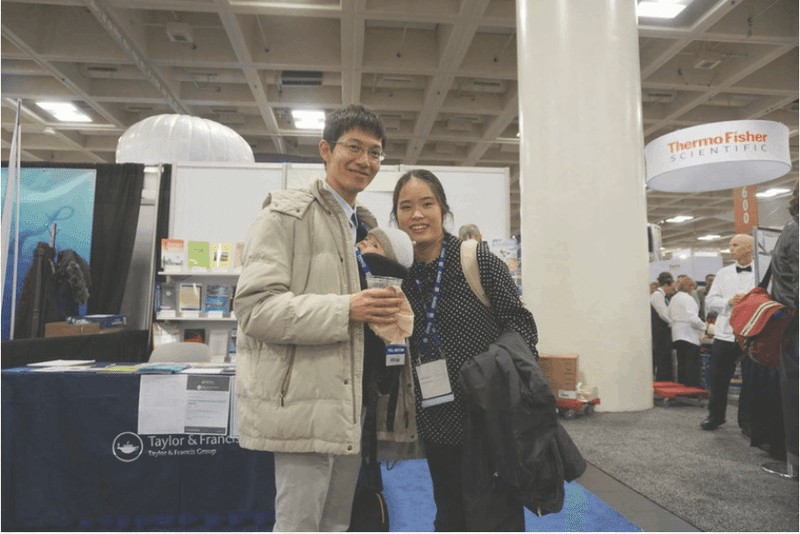
Nao at Caltech – No excuse if you have a chance! 機会があるなら言い訳無用!
This time, as one of the study/work abroad episodes, I’m going to introduce Nao, who worked at Caltech in the U.S.
His experience as a post-doctoral fellow is quite different from others, and after coming back to Japan, how does he reflect on it? Please read through it!
さて今回は海外勤務の連載として、Caltechに勤務されていたNaoさんから話を伺いたいと思います!
今までの方とは全く違うポスドク研究員としての経験、日本に帰国した今どんな景色が見えているのでしょうか?是非ご覧ください!
(前回の投稿 Previous study-abroad episode)
1. 海外勤務の経緯 〜海外での研究環境を肌で感じてみたい!〜
(Hiro) では初めに、海外勤務された時期と場所を教えてください!
(Nao) ポスドク研究員としてCaltech(カリフォルニア工科大学)にほぼ2年間(2015年4月~2017年2月)勤めていました。
住んでいたのは、Los Angelesの郊外にあるPasadenaという所です。
(Hiro) Please share with us how long and where you worked abroad!
(Nao) I worked at Caltech as a post-doctoral fellow for almost two years from April 2015 to February 2017. I lived in Pasadena, a suburb of Los Angeles.
(Hiro) どのようなキッカケで海外に行くことになったのでしょうか?
(Nao) 大学生時代に海外の大学院への進学を検討したことがあったのですが、別の就職先(高校の非常勤講師)が決まったこともあって、その時は諦めました。
その後、大学の留学支援プログラムで2ヶ月Caltechに行って楽しかったので、ポスドクとして行きたいと思うようになりました。
私は地震学が専門なのですが、地震の分野は日本が最先端なので、海外から来る人に比べて海外に行く人はそこまで多い訳ではありません。
それでも、Scienceのコミュニティを見るとアメリカが世界の中心になっていて、海外での研究環境を肌で感じてみたくて飛び込みました。
(Hiro) 応募はどのようにされたのでしょうか?
(Nao) 日本学術振興会の制度を使ったため、そこに個人単位で応募しました。
希望勤務先とともに、A4で5枚程度(これまでの研究内容、これからの展望)のステートメントを出して審査してもらいました。なお、選考は全て日本語です。
(Hiro) What made you decide on working abroad?
(Nao) I considered studying abroad for graduate school, but fortunately (unfortunately?) I got another job (part-time lecturer at a high school) so I gave up.
I once visited Caltech for two month supported by studying-abroad support program when I was a graduate student. I majored in seismology, and Japan is leading this field so there are not many colleagues who study or work abroad compared to people coming from overseas.
On the other hand, the scientific community centered in the U.S., so I wanted to have a real understanding of research environment in the U.S.
(Hiro) How did you apply?
(Nao) I applied to JSPS individually, which supported my working abroad.
I submitted a statement elaborating on what I have studied and what I will, coupled with which research institute I wanted to work at. All selections are done in Japanese, not English.
2. Caltechでの研究の日々 〜裁量労働時間制、学会への参加も〜
(Hiro) 大学の学生の内訳はどのような感じですか?
(Nao) Caltechは少数精鋭で(数百人)、私が所属しているGeology and Planetary Scienceにはアメリカ国籍の人は実は2割くらいしかいません。半分くらいは中国人、他はメキシコとかヨーロッパの方が多いイメージですね。
(Hiro) 授業や研究の内容について分かりやすく教えてください!
(Nao) 授業は受けなくても良いんですが、興味のある授業は自由に受けることが出来ます。
オブザーバーなので、宿題とかをする必要はありません。週2日授業に出て、後は研究という感じでしたね。
氷河が動くことにより地震が発生するのですが、そのメカニズムを理解することが目標です。夏は氷河が溶ける時期で変化が激しいので、仲間が氷河に地震計を置いてきます。その観測データを分析するのが研究内容です。
(Hiro) データの分析や収集のやり方で日本との違いはあるのでしょうか?
(Nao) 研究の方法についてはGlobal standardが確立されているので、大きな違いはありません。
チームワークの仕方などの研究(仕事)スタイルについても、日本でもアメリカでもそれなりに多様性はあるので、特段に日本とアメリカで違うということはないと感じています。
(Hiro) How does the demography at the school look like?
(Nao) Caltech has a relatively small size of students, and Americans account for only 20% when it comes to my department, Geology and Planetary Science. Half of them are Chinese, and the rest are Mexicans and Europeans.
(Hiro) Can you elaborate on the courses and research you are engaged in?
(Nao) I did not have to take courses, but I did because I was interested in some courses. I was not supposed to submit assignments as I was an observer.
I attended courses two days per week, and the rest of the week was spent on my research. Small earthquakes occur because of the movement of glaciers, so I worked on understanding their mechanism. In summer glaciers melt and lots of interesting phenomena go on, so my colleagues deploy seismometers on glaciers. My research was analyzing the observational data.
(Hiro) Is there any difference in the way of collecting or analyzing data between Japan and the U.S.?
(Nao) Not really because there is a kind of gold standard all over the world. The way of research is diverse both in Japan and the U.S., so I did not notice specific difference between the two countries.
(Hiro) 一日のスケジュールはどんな感じなのでしょうか?
(Nao) 裁量労働時間制なのでいつ出勤しても良い形になっています。10時頃出勤して、ミーティングやセミナーに出たりしつつ、先ほどのデータ分析をして18時頃退勤するような形です。
夏はHoliday seasonなので、人が一気にいなくなったりしますね。後、日本だとランチは個人で片手間に食べていたんですが、アメリカは皆で1時間おしゃべりしながら食べたりします。
(Hiro) 仕事をチームで進めるような感じなのか、それとも個人作業が主なのでしょうか?
(Nao) 生物の実験とかとは違って、パソコンでしかも個人でもできる作業が大部分なんですね。
なので、かちっとしたチームがある訳ではないです。受入れ教員の方がいるので、その人に研究の進捗を相談したりして進めていきます。
後は、アメリカ地球物理学会というのが年に1回あって、そこで若手の研究者との交流があったりします。日本の地震学は進んでいるので、日本人は他国と比べて人数が多い印象ですね。
(Hiro) How does your daily schedule look like?
(Nao) My working time is quite flexible, so I started to work around 10am, mostly analyzed data, and sometimes had a meeting and attended a seminar, then leave the office around 6pm.
In summer, there are less people as they take a vacation. In addition, we had lunch together with colleagues for an hour, unlike in Japan where I had lunch by myself at the desk.
(Hiro) Is your research individual or a teamwork?
(Nao) Mainly individual, as most of my tasks were done by myself and using a computer. I had a advisor, so sometimes I consulted with him how to proceed my research.
Moreover, I attended American Geophysical Union Meeting, which is held annually, and interacted with researchers of my age. There are many Japanese researchers compared to other countries, as Japan is famous for seismology.
3. 渡米しての気付き 〜理科離れは日本だけの課題ではない〜
(Hiro) 渡米前と後でのギャップ(驚いたことなど)はありますか?
(Nao) 日本で研究していた時よりも、周りの人とコミュニケーションする機会は多いと感じました。
また、住居が大学からは徒歩圏内で、治安は良いと言われていたんですがそれでも22時以降はあまり歩けないということで、注意が必要だった点でしょうか。
(Hiro) What surprised you after coming here?
(Nao) I had more conversations with my colleague than I do in Japan.
Moreover, I lived in a walking distance from the university, and this place was considered to be safe. However, I heard that it was dangerous to walk around after 10pm, which made me surprised.
(Hiro) 海外勤務中に苦労したことなどはありますか?
(Nao) 英語は高校時代から元々あまり好きじゃなかったので、それを多少後悔している面はあります。
ただし、今回の海外勤務に当たって特別に英語を特訓したということはないのですが、思ったほどcriticalには困らなかったですね。
(Hiro) 日本にいた時に、英語を使う機会があったのでしょうか?
(Nao) 地震分野ということもあって、学会とかワークショップで外国人との交流する経験は比較的ありましたね。先進国+地震が多いということもあって、日本に来る研究者がとても多いんです。
(Hiro) What kind of challenges were you faced with?
(Nao) Honestly I did not like English when I was a high school student, and I slightly regret not studying hard.
However, I did not get into a critical trouble owing to my English, although I did not practice anything special before or after coming here.
(Hiro) Did you use English periodically when you were in Japan?
(Nao) I sometimes interacted with foreign researchers at an academic meeting or workshop.
Many foreign researchers come to study in Japan because Japan is a developed country and has experienced a lot of earthquakes.
(Hiro) 他にアメリカで気付いたことはありますか?
(Nao) いま、理科離れが日本だけではなくアメリカでも課題になっているんです。
アメリカはその人手不足を移民で補填している面があり、その人達がアメリカの大学教育を支えていると感じました。
他方、日本は担い手がどんどん縮小していっているので、危機感を感じています。
(Hiro) Any other thoughts or reflections?
(Nao) Young people are becoming less interested in science in the U.S. too.
The shortage in human resources is complemented by immigrants here, and without them higher education in the U.S. would not be sustainable.
On the other hand, Japan has few foreigners, so I’m concerned about the future of Japanese science community.
4. 読者へのメッセージ 〜準備が出来ていないのを言い訳にして行かないのはもったいない!〜
(Hiro) 今後の展望などあれば教えてください!
(Nao) 日本とアメリカでは研究環境はあまり変わらないと思うのですが、雰囲気はアメリカの方が好きだなと感じました。
今後、海外で職が見つかれば、また行ってみたいなと思っています。
(Hiro) 大学教員の採用情報はどうやってキャッチするのでしょう?
(Nao) 学会のウェブサイト等を通じて一般公募になります。
(Hiro) ただ、海外ではやはりコネクションが重要になるので、学会などでネットワークを広げておくことも重要なのでしょうね。
(Hiro) Do you have any future career plan?
(Nao) Although the research environment in Japan and the U.S. is similar, I like the atmosphere in the U.S. Therefore, I would like to work abroad again if I get another chance.
(Hiro) How do you get information about faculty recruitment abroad?
(Nao) Mainly from the website, and through a general selection process.
(Hiro) But personal connection seems to matter, so it’s important to broaden your network through academic meeting or something else.
(Hiro) それでは最後に、海外勤務を考えている方へのメッセージをお願いします!
(Nao) 私は渡米に当たっての準備期間はそこまで長くなかったんです。応募が1年前、結果が出たのが半年前くらい。なので、準備ができていないのを理由にして行かないのはもったいないと思っています。
チャンスがあれば行ってみるのが良いのではないかと。それがないと、ずっと日本にとどまっているだけになってしまいますので。
最初は興味本位で行ってみたいというところから始まったのですが、今振り返って考えると海外に行ってみて本当に学ぶものが多かったと思います。
(Hiro) Lastly, please share your message to those who consider working abroad!
(Nao) My preparation period for working abroad was not long. Submitted application one year before leaving Japan, and got an offer six month before.
Therefore, you should not make it an excuse that you need more preparation. If you have a chance, don’t miss it and just say yes! Otherwise you end up staying in Japan forever. My journey started just out of curiosity, but now I learned a lot of things that I could not in Japan.

Naoさん、お忙しい中に話を聞かせてもらってありがとうございました!
海外に行くことって準備が大変そうだから諦めてしまう人も多いと思うのですが、まずは行動を起こしてチャンスを逃さないことが大切ですよね。
次回は別の国で留学している方からの体験を聞いてみたいと思います。是非楽しみにしていてください!
Thank you Nao for having a skype chat! I know many people give up going abroad because of a daunting preparation, but your point of taking an action so that you don’t miss it makes a lot of sense.
In the next series I’ll introduce an energetic friend who studied abroad, so please be looking forward!
この記事が気に入ったらサポートをしてみませんか?
